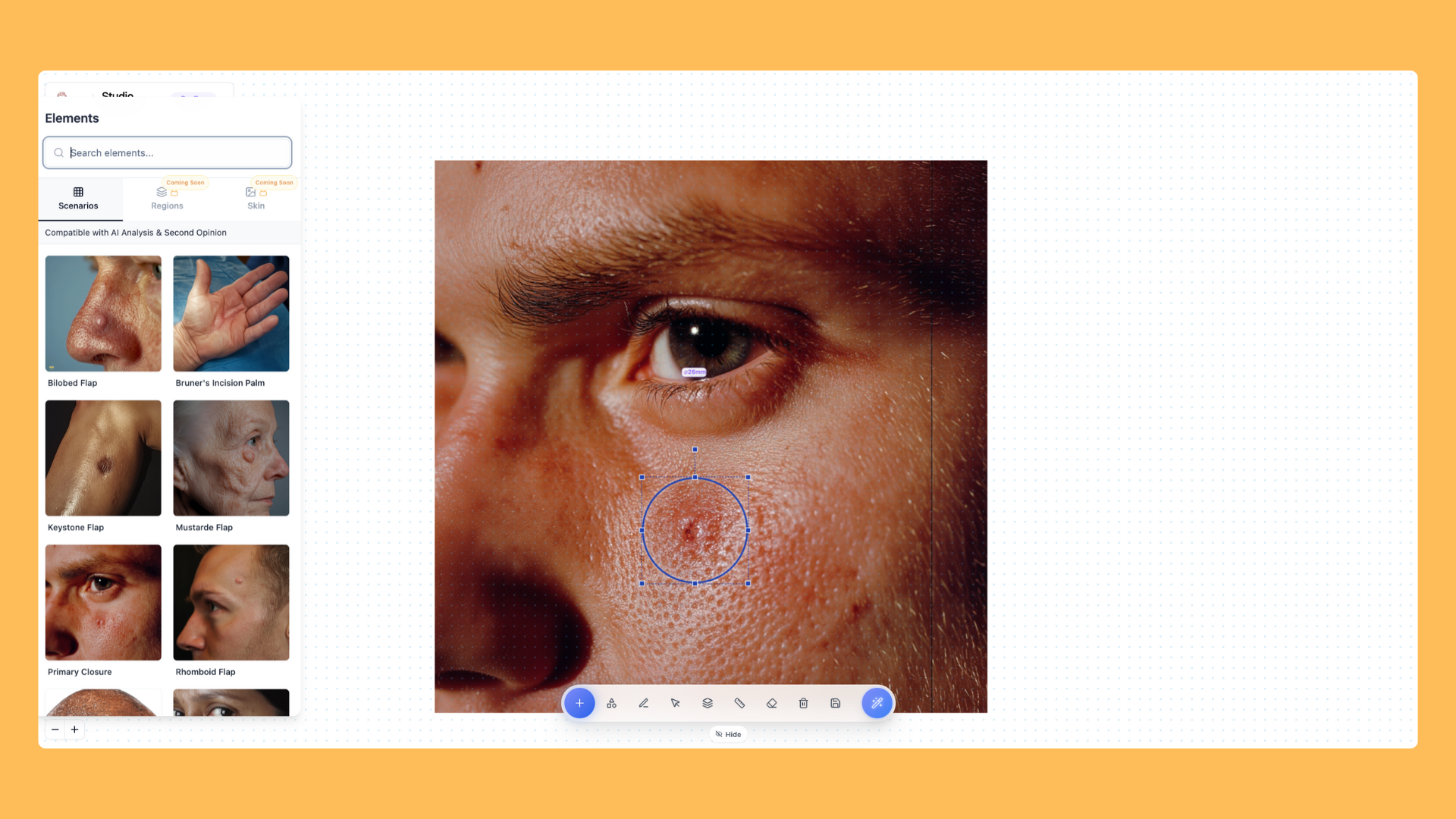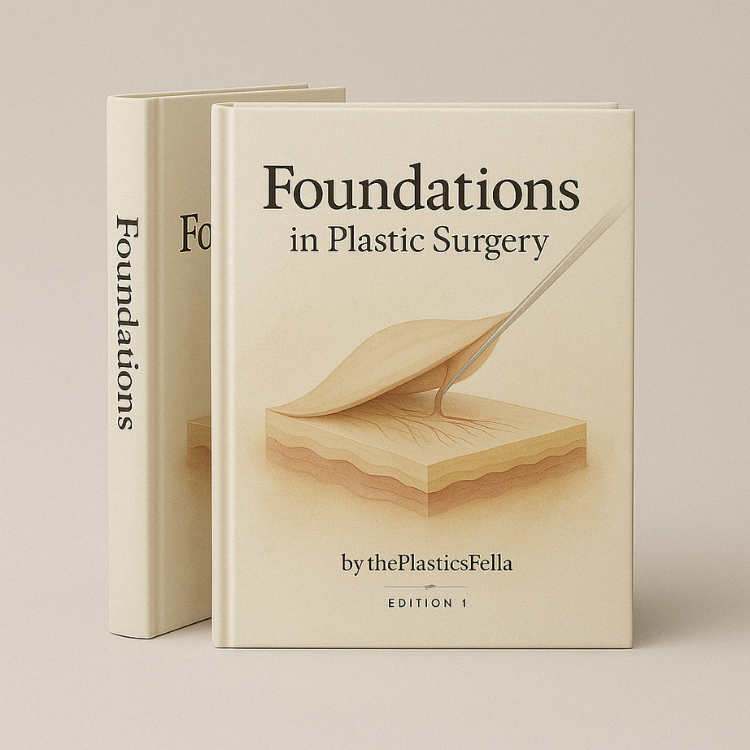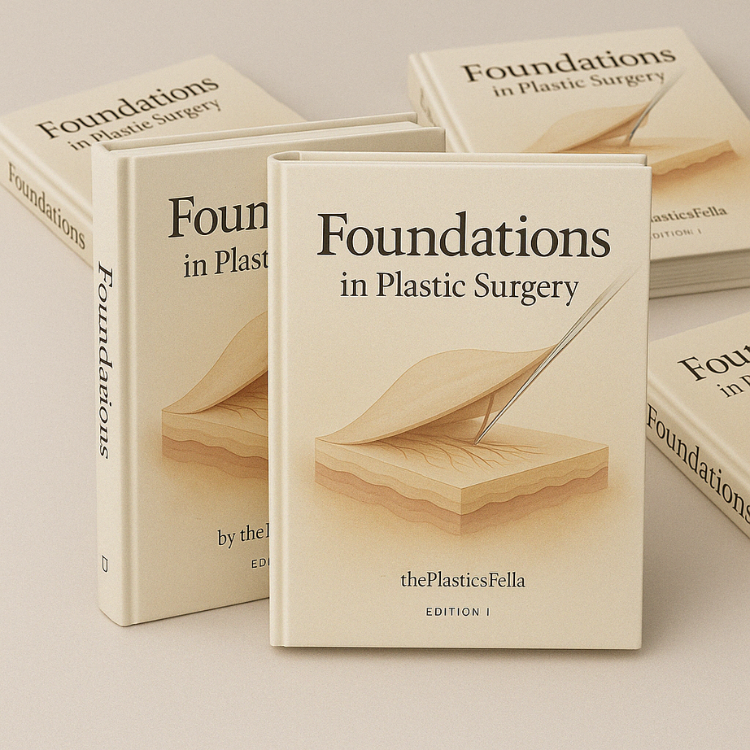In this week's edition
- ✍️ Letter from P'Fella
Why are we still learning from dead textbooks? - 🤓 The Sunday Quiz
How well do you know venous congestion? - 🎙️ Behind the 'Fella
Suggest any questions for our next guest. - 🎈 Upcoming Events
New event added! - 🚀 New Features
AI Surgical Studio updates! - 📚 Book Review
Feedback on Foundations by The Plastics Fella. - 🔥 Articles of the Week
NPWT helps breast recon?, predicting DIEP complications, & a classic publication on free flaps: with 1-sentence summaries. - 💕 Feedback
Suggest ideas & give feedback!
A Letter from P'Fella
We’re Still Learning from Dead Textbooks
Let’s stop pretending this isn’t a problem.
Most plastic surgery textbooks haven’t been updated in years. Some haven’t meaningfully changed in over a decade. Yet we’re still assigning them, quoting them, and building exams around them like they’re gospel.
They’re not. They’re outdated — and in some cases, outright wrong.
What’s Broken
Here’s the honest truth.
- Techniques evolve. Textbooks don’t. You’re learning from operations that aren’t done anymore. Or worse — missing the ones that actually are.
- They never get corrected. An error in the 2014 edition is still sitting there in the 2023 one. We’ve normalized reading around the mistakes.
- Outdated copies never go away. You can still buy a textbook from 2007 on Amazon. That’s what students are studying from. That’s what trainees are downloading as PDFs.
- It’s a closed system. No transparency. No accountability. And definitely no way to challenge what’s written, even when it’s obviously flawed.
This isn’t just a publishing issue. It’s a training issue. And it’s making us worse.
So We’re Doing It Differently
We're building a new textbook — Foundations by The Plastics Fella — and here’s what we’re refusing to replicate:
- Every chapter gets reviewed annually. Not in theory. In practice. A full update cycle every 12 months, with tracked changes and transparent version control.
- There are no outdated versions. You can’t buy an old edition. Everyone sees the same current version. If something changes, everyone benefits.
- Mistakes get fixed. Fast. There’s a feedback system. If something’s wrong, unclear, or outdated, it doesn’t sit there for another decade. It gets addressed.
- It’s built by the community. Trainees and surgeons contribute, review, and refine it. It reflects how people actually learn and operate, not just how they publish.
This Isn’t About Innovation. It’s About Necessity.
Plastic surgery moves fast. The resources we learn from should too.
We're not trying to be clever. We’re just done accepting that a textbook published in 2012 is still acceptable in 2025.
This is the fix. And it starts now.
👉 Join the waiting list if you want early access, or if you just want to see what a modern textbook should look like.
P’Fella ❤️
The Sunday Quiz
How Well Do You Know Venous Congestion?
Welcome to the next round of The Weekly Quiz.
Each edition of thePlasticsPaper includes a quiz question designed to challenge and engage our readers. Keep your wits about you and join in every week — the winner at the end of six rounds will earn you a one-year subscription to thePlasticsPro.
Behind the 'Fella
Questions for Our Next Guest
Our recordings are in progress! For the next guest, we're interviewing a DIEP expert.
Whether it's about technique, complications, or training, submit your question below 👇
Upcoming Events
New Event Added!
We've just added ASPS Advocacy Summit to our calendar; sign up below👇
New Features
AI Surgical Studio Version 2.0 Is Here
We’ve just rolled out a new of the AI Surgical Studio — our interactive, AI-powered tool designed to help you visualise, plan, and refine surgical techniques with precision.
Want early access to upcoming features? Join the waitlist below👇

tk - below is the usual waitlist tally form
Book Review
Foundations by The Plastics Fella
Here is our current draft of the cover design. Share your thoughts below 👇


Foundations by The Plastics Fella
Articles of the Week
3 Interesting Articles with One-Sentence Summaries
In a large cohort study of 1125 flaps, closed-incision negative pressure therapy significantly lowered infection and dehiscence rates at DIEP donor sites, particularly among patients with a BMI >30.
Each additional hour in theatre increases overall complication risk by 16% in DIEP reconstructions, highlighting operative time as a key modifiable factor in flap success.
In one of the largest series to date, a second free flap proved more reliable than regional or conservative approaches in salvaging failed reconstructions, especially in the head and neck.


